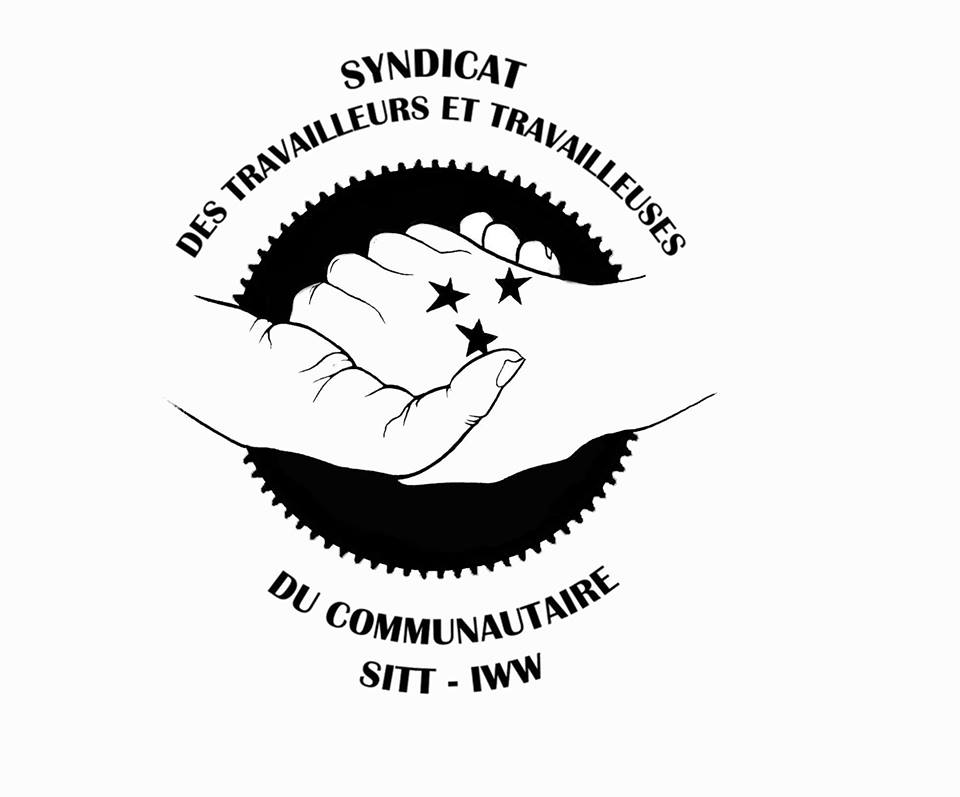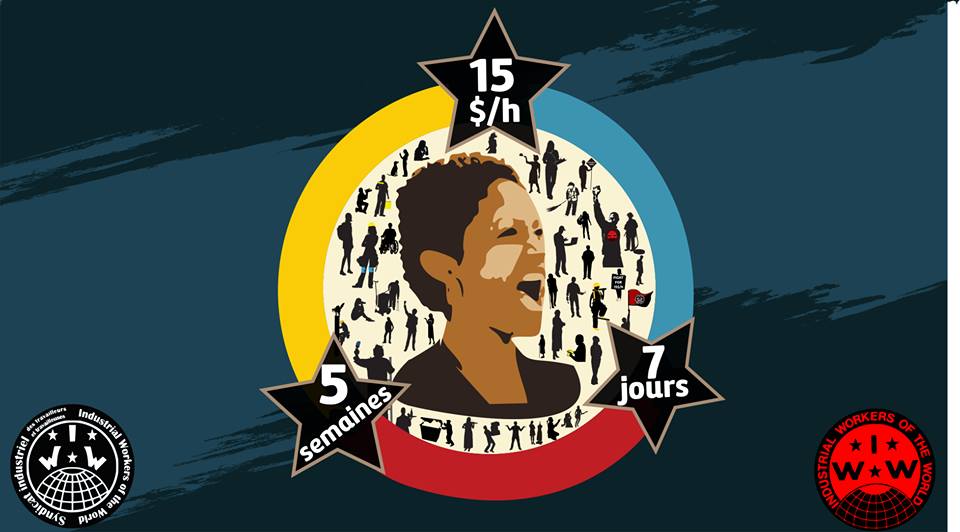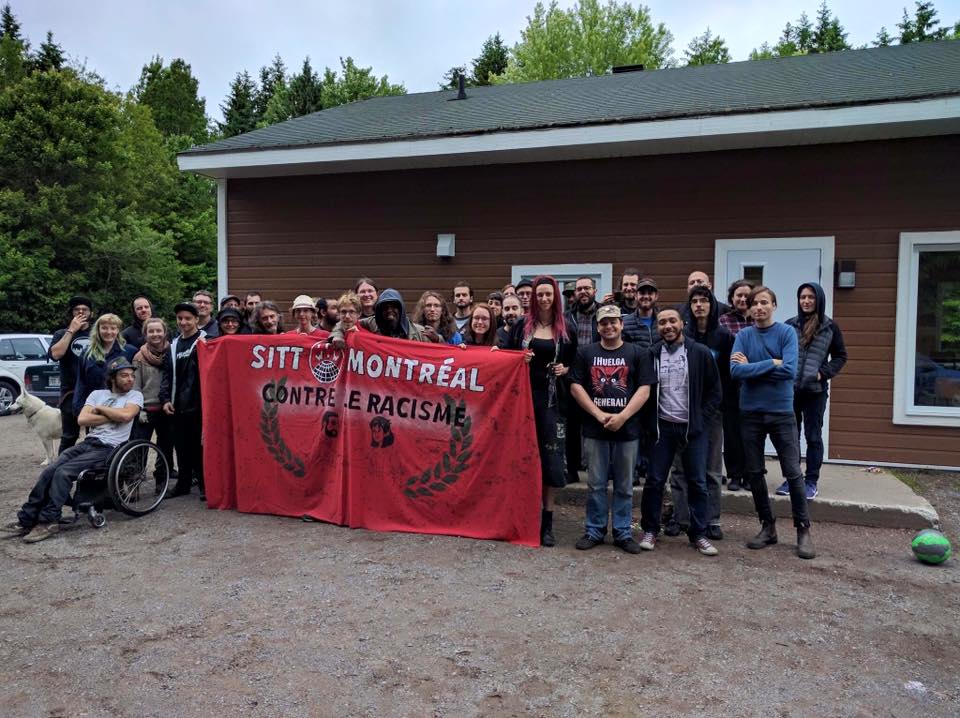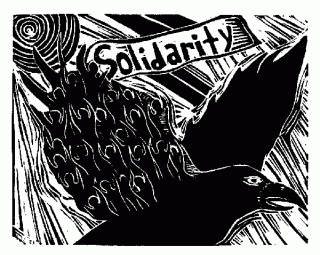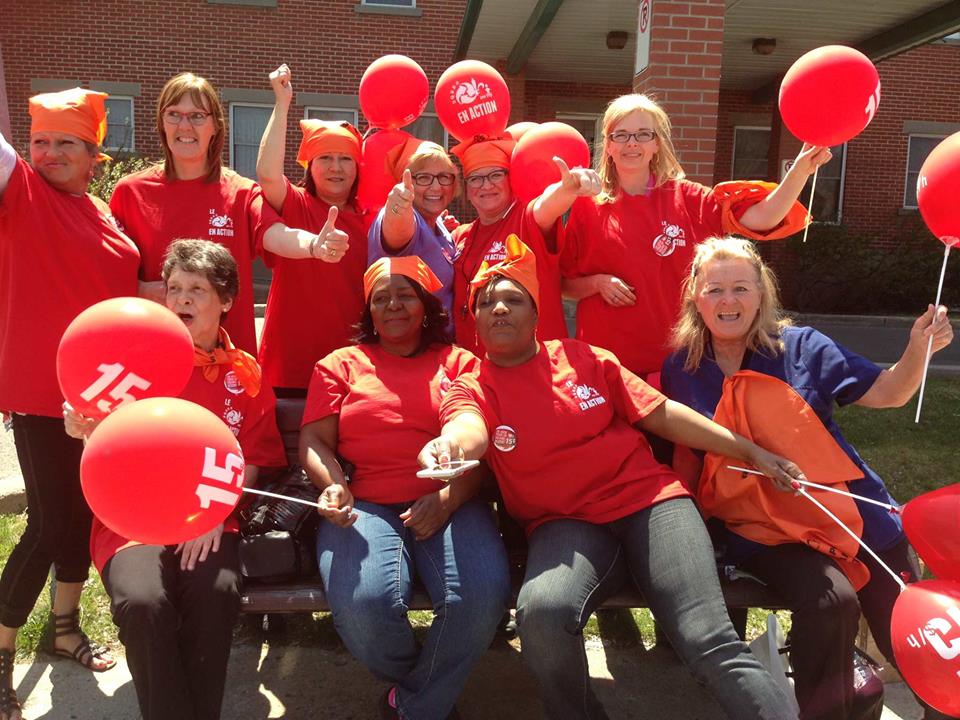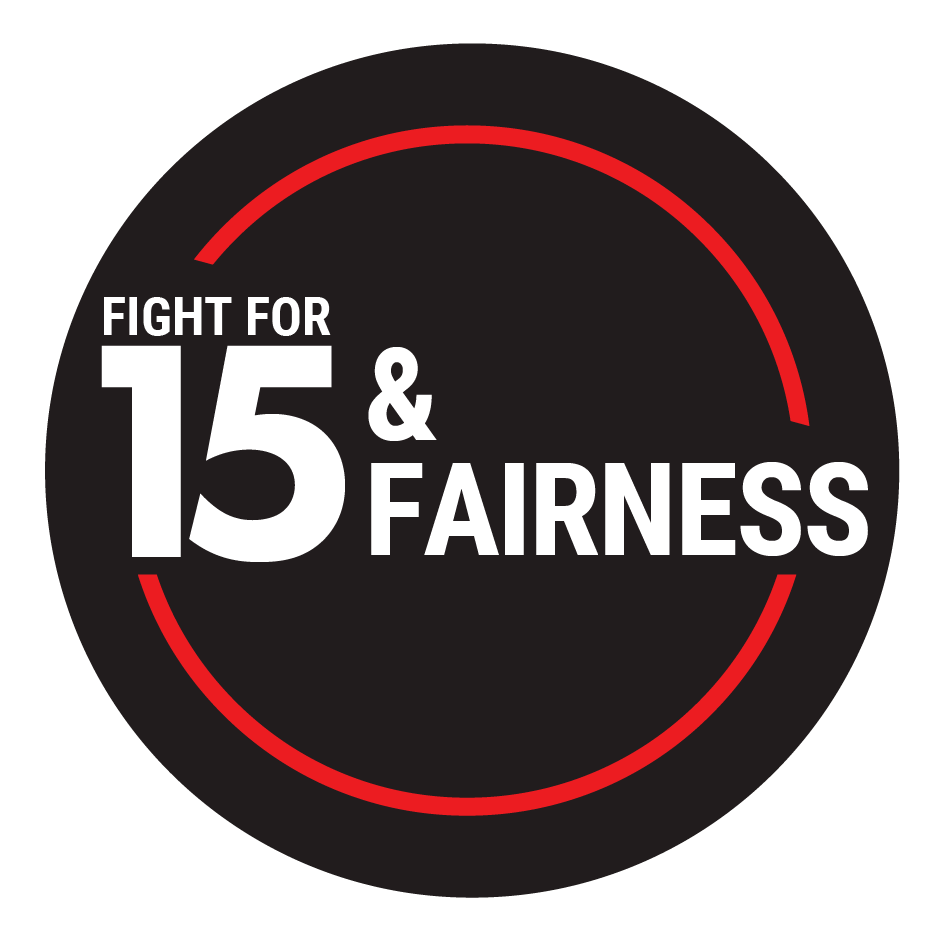Solidarity e-s-order of the Labour Act
In solidarity with those who have fought and still fighting against the Labour Act and "the world", the SITT-Montreal IWW organized a fundraiser to help the group Collective Defense (DefCol) from Paris, and offering supportt moral and financial arrêté.e.s to persons and / or incarcéré.e.s in connection with the movement that began this spring. This amount is of course symbolic, but it is an international solidarity must be maintained in order to fight the system that starves us and plunges us into poverty.


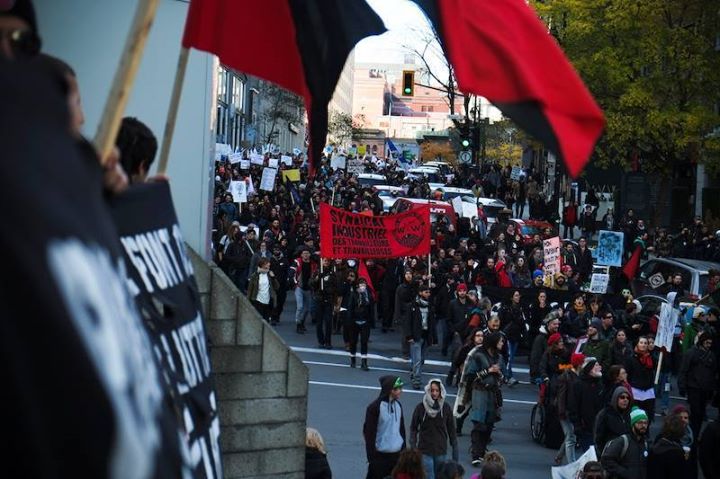
 Rico, of Haiti, Jamaica, Nepal and the Philippines, and they all have similar stories to share. Each showed me the oppression they lived at home. They are forced to conform to gender roles and follow the traditional standards of what defines a woman. Some tried to break free of these roles, but the pressure of their entourages and their families usually finished by overcoming their will. While some were able to fight against the current, they are systematically insulted and stigmatized, develop poor self-esteem and sometimes sink into anxiety and depression. I myself lived, and still alive, emotional distress episodes. I left myself a depression 2013 after six months of therapy, and I am still against low social anxiety and low self myself. Nevertheless, I managed to keep my integrity and I will continue to do so in order to continue the fight.
Rico, of Haiti, Jamaica, Nepal and the Philippines, and they all have similar stories to share. Each showed me the oppression they lived at home. They are forced to conform to gender roles and follow the traditional standards of what defines a woman. Some tried to break free of these roles, but the pressure of their entourages and their families usually finished by overcoming their will. While some were able to fight against the current, they are systematically insulted and stigmatized, develop poor self-esteem and sometimes sink into anxiety and depression. I myself lived, and still alive, emotional distress episodes. I left myself a depression 2013 after six months of therapy, and I am still against low social anxiety and low self myself. Nevertheless, I managed to keep my integrity and I will continue to do so in order to continue the fight. let these obstacles stand in our way. I remember being petrified me the first time I have expressed about my personal problems with a classmate. I thought she would not understand me and I trouble you, but after telling him my story, I soon found that she was facing the same problems and was facing empathetic to my situation. It has completely transformed my life as I had previously thought that I had ever expected to talk about these issues to my therapist, but I was wrong. There are plenty of people around us ready to listen and support us; it's up to us to go to them. I have come to understand that the problems of gender still exist and that the obstacles I face are real. Through simple actions like talking about them and build relationships, I think we will come to create a group of people determined to create tactics to abolish these oppressions. Thus was formed Mujeres Libres, who managed to create a trend within the Confederación Nacional del Trabajo and Federación Ibérica Anarquista to face the problem of gender inequality. By magnifying their ranks, They eventually carve out a special place in front during the Spanish Revolution. We can do the same today if we put our hearts and souls. Many of us would say that our capabilities and today's social climate make such a thing possible, but how would we know without even trying? This is why I encourage all revolutionary women stop doubting themselves and to engage in combat. Let's break the silence now and create solidarity we need.
let these obstacles stand in our way. I remember being petrified me the first time I have expressed about my personal problems with a classmate. I thought she would not understand me and I trouble you, but after telling him my story, I soon found that she was facing the same problems and was facing empathetic to my situation. It has completely transformed my life as I had previously thought that I had ever expected to talk about these issues to my therapist, but I was wrong. There are plenty of people around us ready to listen and support us; it's up to us to go to them. I have come to understand that the problems of gender still exist and that the obstacles I face are real. Through simple actions like talking about them and build relationships, I think we will come to create a group of people determined to create tactics to abolish these oppressions. Thus was formed Mujeres Libres, who managed to create a trend within the Confederación Nacional del Trabajo and Federación Ibérica Anarquista to face the problem of gender inequality. By magnifying their ranks, They eventually carve out a special place in front during the Spanish Revolution. We can do the same today if we put our hearts and souls. Many of us would say that our capabilities and today's social climate make such a thing possible, but how would we know without even trying? This is why I encourage all revolutionary women stop doubting themselves and to engage in combat. Let's break the silence now and create solidarity we need.